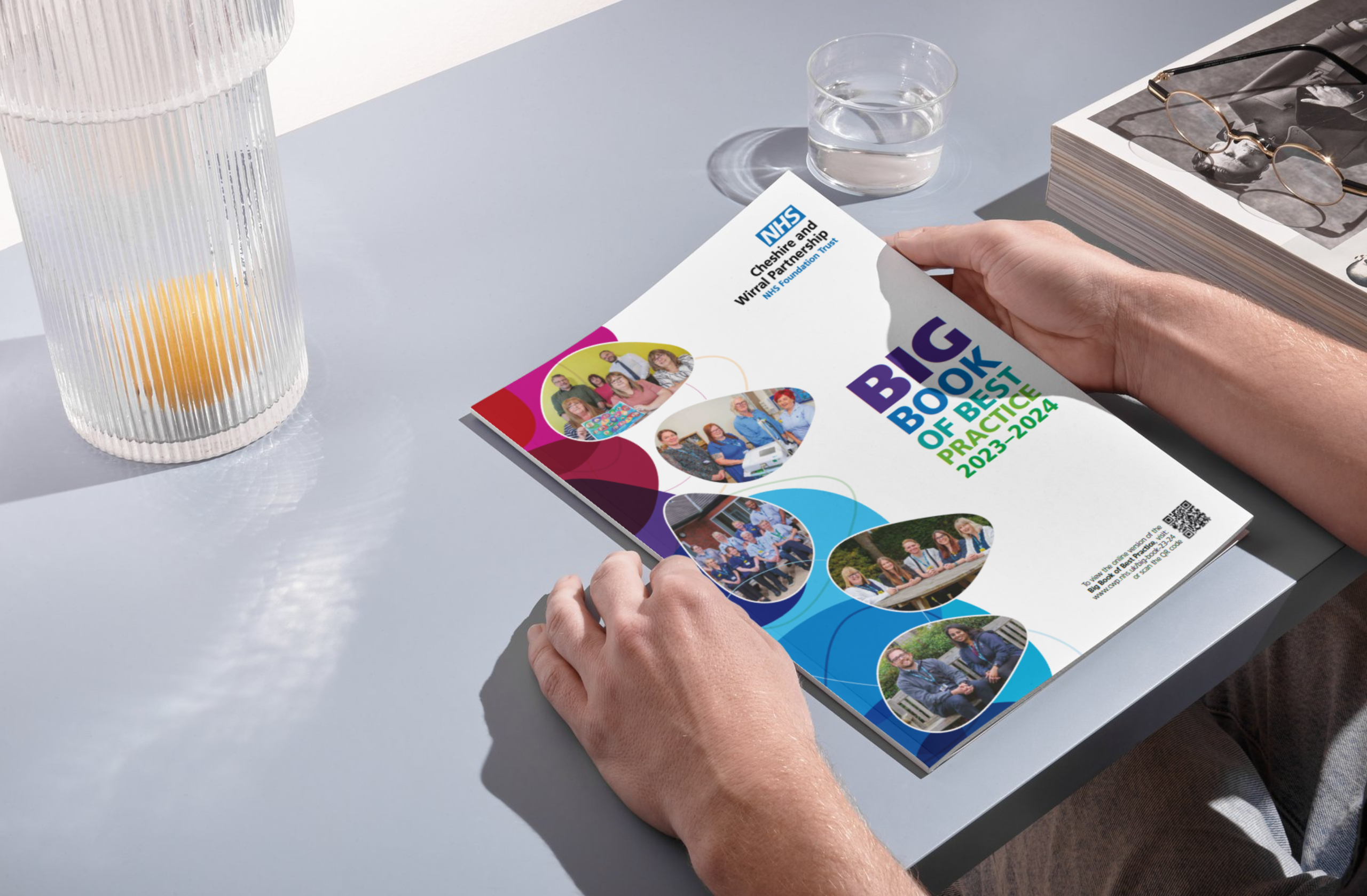Below you can view all the entries that made it into the Big Book of Best Practice 2023-24 from the learning disabilities, neuro-developmental and acquired brain injury care group.
Contact details for each project can be found within the entries below. For more information about the Big Book of Best Practice, email cwp.
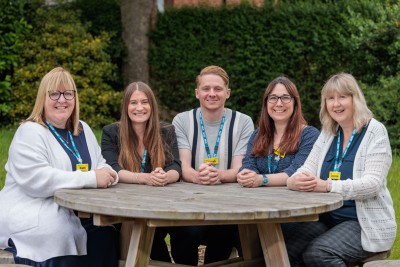
Contact: marianne.
What did we want to achieve?
Literature highlights a high prevalence of sleep disorders and difficulties among individuals with diagnoses of intellectual disability, autism and attention deficit hyperactivity disorder (ADHD). The aim of the clinic was to provide specialist multi-disciplinary clinical support and guidance to people with intellectual disabilities, as well as their families and carers around sleep. The team aimed to provide evidence-based psychological and behavioural interventions as alternatives to medication where possible.
What we did
A multidisciplinary sleep clinic was offered to individuals who were already open to the East Cheshire Community Learning Disability Team (CLDT). Referrals were only accepted following an initial team assessment. Individuals who were open to psychiatry, taking medication for sleep, had diagnoses of autism and ADHD, or required extra support around challenging behaviour were prioritised. Three clinicians led the clinic, and a further four clinicians were trained. The clinic involved an appointment for a detailed assessment of the individual’s sleep difficulties, behavioural and psychological recommendations, and a follow-up clinic appointment.
Results
Sixteen individuals with intellectual disabilities were seen in the sleep clinic. Assessment scores and qualitative feedback from nine out of 16 individuals showed that their sleep had significantly improved following the clinic. The behavioural and psychological sleep consultation model appeared to be effective for these individuals. This has had an impact on both the individual’s wellbeing and their carers’ wellbeing, as well as their ability to participate in daily life during the day. This had also reduced the reliance on medication for sleep.
Seven individuals, or their carers, were unable to implement sleep recommendations due to other complexities or priorities. Nevertheless, the sleep clinic process was still useful for providing a greater understanding around the sleep difficulties and how these could be improved in future. It also led to signposting to other services in relation mental health, physical health or social care needs.
Next steps
The sleep clinic has been temporarily paused due to the demands on the service. In many cases it would make most sense for an allocated clinician to provide assessment and recommendations around sleep as part of their involvement with an individual, as this would allow for a timely, holistic approach.
Therefore, training in sleep assessment and intervention has been delivered to East CLDT clinicians, and to the Learning Disability Clinical Network Group, to refresh knowledge and build confidence among clinicians in advising around sleep difficulties. Training was also provided to local care providers with the aim of building up knowledge and confidence in carers to support individuals around their sleep, thus preventing the need for referrals to the CLDT. Both of these training sessions received excellent feedback.
The next step will be to create an online training package around sleep for people supporting individuals with intellectual disabilities, which anybody can access.
Team: Wirral Community Learning Disability Team
Contact: gavin.
What did we want to achieve?
The Wirral Community Learning Disability Team’s project, in conjunction with the Centre for Autism, Neuro-Developmental Disorders, and Intellectual Disability (CANDDID), is utilising virtual reality (VR) to improve access to healthcare and compliance with health procedures, for people with intellectual disabilities.
It is well-documented across literature that people with learning disabilities have poorer health than the general population. Many people with learning disabilities or autism have high anxiety concerning both physically attending health appointments, and also about medical investigations and treatments, such as taking bloods. This often results in appointment cancellations or non-compliance at appointments.
The traditional methods that community learning disability teams use to help people with anxiety attend their appointments, is to desensitise them. Whilst current desensitisation techniques, such as driving past the building with patients, do work, there are several issues with these, such as a high reliance on availability of staff, as well as the fact that it is very time consuming.
What we did
The team created a 360-degree environment of practices that patients can virtually walk around prior to their appointments, putting a face to the member of staff the patient will be seeing, and recording some procedures that may be done with them, such as blood pressure or body mass index (BMI) checks. The goal was for patients to become less anxious about attending their appointments, hopefully resulting in a higher attendance and compliance rate.
Results
The team is currently in the pilot phase of this project but so far, five VR experiences have been established and results have been really positive and feedback has been used to constantly update and improve the experience.
For every professional, the team aims to produce a 30-second video describing three things about themself that they feel comfortable sharing, such as hobbies, pets or their favourite place to go on holiday. This video will be part of the VR experience or can be used separately for patients to view prior to their clinical appointment.
Next steps
Currently the technology is supported by the use of Meta Quest 2 headsets, laptops, smart phones and tablets. The team is also looking at more cost-effective ways of utilising the tours through lower-cost applications.
In the months ahead, the team aims to develop the VR library further and look to expand the accessibility of the product to the patient group. Discussions with allied health professionals within the team are underway, to explore other ways of utilising this technology as part of their practice.
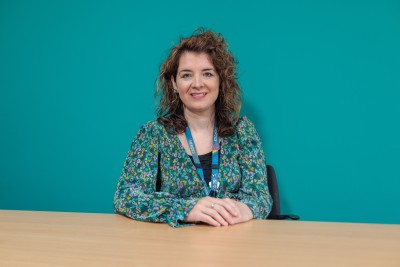
Contact: rachel.cottrell@nhs.net
What did we want to achieve?
The Adult Autism Service team noticed that many patients were requesting alterations to their reports due to disliking some of the language that had been used to describe their differences to neurotypical people. The team were in agreement that they wanted to use a reporting style that empowered autistic people, using neuro-affirmative language to positively report on their skills, differences and preferences. The aim of the project was to collaboratively investigate, with experts by experience, whether appropriate neuro-affirmative language was used in autism assessment reports and to coproduce guidance for a report writing style, adapting any language that may be less accepting and/or could be offensive.
What we did
The practitioner completed a clinical audit of 10 reports to see if any of the current language needed to change. She organised a participation group to review contemporary literature and formulate a table of neuro-affirmative language, which could be compared against the current language used in the report. A template was coproduced to advise of the recommended neuro-affirmative language. This was shared with the team to help improve the assessment reports for autistic people. She presented this to the team and used reflections from the literature and the participation group as her rationale - specifically how this would help build autistic people’s self-esteem.
Results
Some examples of how deficit-focused language can be changed to neuro-affirmative language include:
- Rather than using language like ‘obsessed’ or intense interests’ use ‘monotropic interests’.
- Rather than using language like ‘disorder’ or ‘deficit’, use ‘difference’.
- Rather than using language like ‘difficulties’, use ‘potential challenges’.
Since the team has implemented this change, feedback from service users has been very positive. Less changes have been requested and other team managers are keen to implement within their own teams.
Feedback from a psychiatrist has included:
- “I absolutely love this, and you have done really fantastic work. I've started trying to write my reports using neuro-affirmative language and I'd love to move to this as standard.”
Feedback from an autistic adult has included:
- “It helps you focus on being able rather than disabled.”
Next steps
The practitioner has been invited to speak about the project and the implementation of neuro-affirmative language on the Post Graduate Certificate in Neurodevelopmental Conditions at the University of Chester. She aims to inspire CWP colleagues to make changes to their language that can empower service users, and changes can be easily implemented within any CWP service. Wording can contribute to positive attitudes towards autistic individuals in any service that reads CWP paperwork for example primary care, secondary care or the third sector.
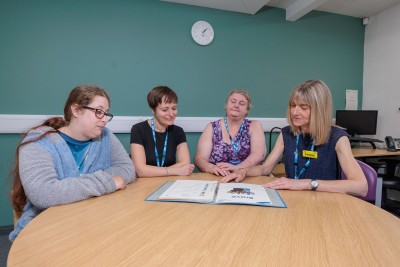
Contact: l.
What did we want to achieve?
The aim was to employ people who have a learning disability and lived experience of anxiety to work alongside clinicians in a Centre for Autism, Neuro-Developmental Disorders and Intellectual Disability (CANDDID) as part of a clinical trial called Brave, which is a 12-week anxiety management programme. The CANDDID team wanted people with lived experience to be fully part of the project, developing the information, workbook and consent forms, chairing the management meetings, supporting staff training, and meeting with people receiving the anxiety programme to capture feedback as part of the project evaluation. The expertise and experience of people with lived experience of anxiety was required to ensure the best outcomes could be achieved.
What we did
The team recruited two people with lived experience of anxiety onto the CWP temporary staffing bank. They have been fully involved in the project since the start of April 2023. Their lived experience has supported the development of the course information and they have been involved in all staff training for the project – working alongside the clinical staff to ensure real life experiences were part of the training.
Interview training was provided by the University of Chester so they could lead on the interviews with people who had received the anxiety programme and capture feedback to support the project evaluation. The CANDDID team wanted to create a peer-to-peer evaluation approach, alongside the clinical questionnaires.
Results
There have been seven staff training sessions, which have all been co-delivered with people with lived experience. Feedback from staff on this has been extremely positive, including:
- “I thought that having people with lived experience there was vital - it made it so much more real.”
- “To hear first-hand from someone with lived experience made all the difference.”
- “It feels more meaningful having people sharing their own experiences.”
The team has also seen a huge growth in confidence in the people with lived experience on the temporary staffing bank. They were recruited due to their experience of anxiety and are now co-delivering training, leading on interviews and evaluating the materials.
The team has also been able to evidence that the peer-to-peer approach does work and people who had received the anxiety programme said they felt more comfortable talking to someone else who had experience of anxiety too.
Next steps
To develop a video of the coproduction journey, so this can be shared with other teams and to move the programme forward from the clinical trial stage.
To continue co-evaluating the programme with people with lived experience so the final anxiety programme is meaningful and in line with what people have told us will help them.
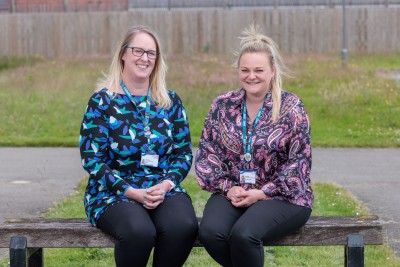
Contact: stacey.
What did we want to achieve?
The aim was to offer adult attention deficit and hyperactivity disorder (ADHD) patients non-pharmacological support, in addition to treatment with medication, through the addition of the newly-created advanced specialist occupational therapist (OT) post within the multi-disciplinary team.
The aim of the role is to develop and deliver non-pharmacological approaches to enhance post-diagnostic support. This is conducted via focused one-to-one advice sessions, to enable people to work towards a valued lifestyle and optimum functional ability.
What we did
To maximise the number of people who could benefit from the new service, it was agreed to offer one-off, strategy-based sessions. A referral form was developed and shared within the team. It set out criteria on what type of support could be provided for specialist one-to-one intervention. Referrals are only accepted from within the team at present. The advanced specialist OT liaised with the administration team to build an appointment rota within SystmOne. This ensured they could see people from each locality on a weekly basis. They put together templates with questions on each topic for the first appointment. A report would be written after with a brief summary of what was discussed, along with recommendations.
The team’s clinical support workers began carrying out a follow-up appointment six weeks after the first appointment. The aim is to review how useful and relevant the person found the information and to assess progress they have made in putting strategies into practice. They also put together a template for questions to be asked as a patient-rated outcome measure.
Results
There were 88 referrals received from the end of June 2023 to the end of January 2024. ‘Sleep’ and ‘executive functioning’ were the most popular topics, representing 71 of these referrals. Feedback received from patients has been overwhelmingly positive, with the majority of people saying the advice they’ve been given has been helpful.
- “I feel so overwhelmed - it’s the first time ever that I’ve asked for help and got what I came for. I feel understood and heard.”
- “It helps you to put real life things into practice.”
- “Having a follow up with clinical support worker will be helpful as it will hold me accountable.”
Next steps
The team will continue to deliver one-to-one advice sessions to those open to the Adult ADHD Service. The aim is to develop resources on a range of topics so these can be handed out at appointments. An evaluation of the OT offer will be used to inform its future continuation and development within the service. In the future, the longer term aim is to deliver group workshops on a specific topic such as sleep and ADHD.
Team: Trafford Adult Community Learning Disability Team
Contact: s.
What did we want to achieve?
The aim was to highlight the need to look after the health of those with learning disability who may struggle to access healthcare and national screening programmes, and to raise awareness that reasonable adjustments can be put in place for anyone with a learning disability struggling to access healthcare. The roadshows enabled the Community Learning Disability Team (CLDT) to promote and raise awareness of the range of services available across the multidisciplinary team, to a wider audience within the community, promoting equal and inclusive awareness for those who may struggle to access the health services they require.
What we did
Information stands and boards were set up at various locations across Trafford, including supermarkets, shopping centres, local libraries, day service providers and a local college. Free blood pressure checks, along with advice on vaccines, healthy eating and weight, diabetes, cancer screening and physical health checks were provided. The importance of having a hospital passport and health action plan in place was highlighted and information on how to make good use of the documents when attending appointments was provided. Key messages were delivered using a variety of inclusive and interactive games, videos, craft activities and verbal presentations at local day services. Easy read information on each of the health topics being covered was provided. Information boards and leaflets were used to illustrate and display the message of the roadshows at all locations. Photographs of the roadshows are shared on social media to increase awareness around the importance of looking after the health of those supported by the CLDT.
Results
The roadshows resulted in increased awareness of the services provided by the CLDT within the local community. Direct referrals were received from the community and areas where further roadshow support is needed were identified.
Feedback from general public included:
- “We weren’t aware of the service and now know how to access it.”
- “I didn’t know the difference between a learning disability and a learning difficulty before today.”
Feedback from service users has included:
- “I liked taking part in the quizzes and games such as knowing which foods were healthy or not.”
- “Getting easy read information helps me understand things about my health.”
- “I like it when the health team come in because they bring information with pictures on.”
- “I like using leaflets with pictures on because they help me understand when I need to go to see the doctor.”
Next steps
The next steps are to increase the number of roadshows delivered, targeting areas of Trafford where low engagement with services and health screening appointments has been identified.
Honorable mentions
With nearly 100 entries received for the Big Book of Best Practice 2023-24, we have unfortunately been unable to include every entry in the final book. However, many of the projects – despite not being selected for full publication – deserve to be celebrated for the fantastic outcomes achieved.
You can view the honorable mentions for the learning disabilities, neuro-developmental and acquired brain injury care group below:
- East Cheshire Community Learning Disability Team - Asking routinely about restrictive practices in Learning Disability Services
- Trafford Adult Community Learning Disability Team - Physio Rehab
- Acquired Brain Injury Service - Self-medication practices of adults with acquired brain injuries: service evaluation of professionals’ awareness and concerns
